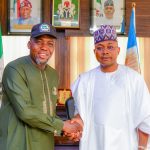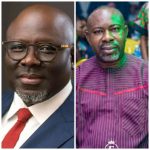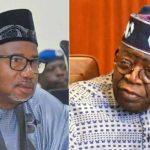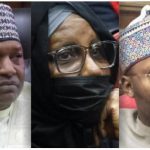WHY BOLA AHMED TINUBU STANDS OUT CLEARLY AMONG NIGERIA’S FORMER LEADERS
By Musa Bakare
In the history of Nigeria’s leadership, civilian and military alike, few have come into office under as much scrutiny or inherited such deep, rooted dysfunction as President Bola Ahmed Tinubu. Barely two years into his presidency, one thing is becoming clear: Tinubu is not just another name in the long list of leaders, he is forging a new path built on reform, innovation, and bold political will.
One of Tinubu’s least publicized but most critical achievements has been his readiness to take on the economic decay left behind by his predecessors. The inherited debt was massive, and the fiscal system sluggish. But through swift restructuring and monetary reforms, investor confidence is returning. Nigeria is now telling the world: we mean business.
Decades of underinvestment left Nigeria’s infrastructure in shambles. Today, Tinubu’s administration is reconstructing roads, revitalizing rail systems, and tackling long abandoned projects. A landmark project in the works the country’s first underwater tunnel may soon place Nigeria on the map for transport innovation across West Africa.
The Academic Staff Union of Universities (ASUU) strikes, once a yearly tradition, are now fading. With consistent lecturer payments and improved dialogue, the administration has brought relative calm to Nigeria’s university system. The classroom, not the picket line, is once again the center of academic activity.
State governments are increasingly stable, with improved salary payment and major development projects underway. As one serving governor recently quoted to declare, with the way he is funding the states, “No state governor will campaign against Tinubu in 2027 Presidential election, irrespective of political party”a bold endorsement of his governance model. Civil servants, long neglected, are seeing a resurgence in dignity and recognition.
Tinubu’s reform driven policies have led to increased investment, both local and foreign. The business community, once gripped by uncertainty, is beginning to reinvest. Confidence is returning, slowly but surely.
Electricity generation and distribution, though still imperfect, are clearly improving. The national grid has stabilized in recent months, and private sector engagement is on the rise. Nigerians are seeing more consistent power at home and in their industries.
A former president once said the NNPC refinery could never work. Today, that refinery is fully operational. For the first time in decades, Dangote is poised to export refined products. Energy independence is becoming reality.
The Central Bank of Nigeria, once marred by scandal and manipulation, is being cleaned up. Dollar hoarding and backdoor forex deals are being eliminated, restoring credibility to the nation’s monetary authority.
The long standing fuel subsidy scam that drained Nigeria’s resources has been dismantled. Dollar arbitrage schemes enriching a corrupt elite have been halted. The focus has shifted to helping the poor, not empowering cartels.
For years, some in the opposition have relied on Nigeria’s struggles as their only campaign material. They offered no policy alternatives, only alarmism. But the Renewed Hope Agenda of the APC under Tinubu is now changing that script.
President Bola Ahmed Tinubu’s leadership is not perfect, but it is purposeful. Nigeria is still a work in progress, but the difference is this: it is finally progressing. Critics would rather see failure than admit success. But Jagaban is not just surviving, he is thriving. And with him, so is Nigeria.
Musa Asiru Bakare is a member of the Tinubu Support Group. He writes from Lokoja, Kogi State.
9th May, 2025












